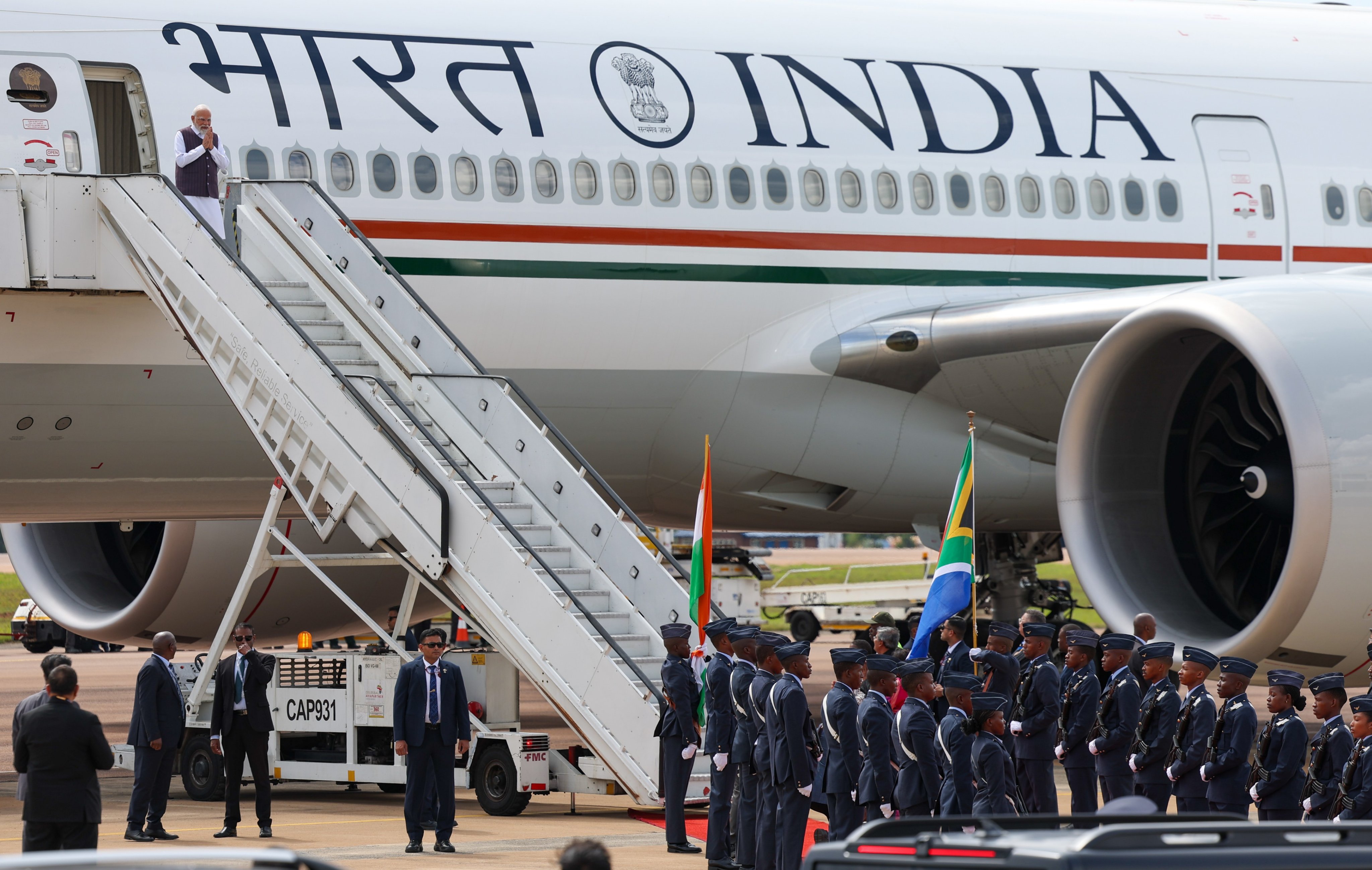Modi Arrives in South Africa for G20 as Global South Takes the Lead Without US or China
Indian Prime Minister Narendra Modi landed in Johannesburg on Friday to attend the 20th G20 Leaders’ Summit, marking a symbolic and strategic moment as the G20 convenes for the first time ever on African soil.
The three-day summit, running from November 21 to 23, is being hosted by South Africa under the theme “Solidarity, Equality, and Sustainability”, a continuation of the development-focused agenda advanced by previous Global South presidencies in India, Indonesia, and Brazil.
 |
| Image Source: PM NaMo |
“This summit is an opportunity to discuss key global issues,” Modi said, adding that India would present its views anchored in the civilizational vision of Vasudhaiva Kutumbakam—One Earth, One Family, One Future.
Over the course of the summit, Modi is scheduled to speak in all three main sessions, which will address:
-
Inclusive and Sustainable Economic Growth, focusing on trade, development finance, and debt burdens;
-
Global Resilience, including climate change, disaster risk reduction, and food systems; and
-
A Just Future, covering critical minerals, decent work, and artificial intelligence governance.
Modi will also participate in the India-Brazil-South Africa (IBSA) Leaders' Meeting, as well as bilateral discussions with fellow G20 leaders, many of whom have converged in Johannesburg amid complex global headwinds.
However, this year’s summit unfolds in the notable absence of two of the G20’s most powerful figures.
U.S. President Donald Trump, citing false claims of Afrikaner persecution, announced a full boycott of the summit, withdrawing American representation.
He was soon joined in protest by Argentine President Javier Milei, who also declined to attend and dispatched Foreign Minister Pablo Quirno in his place.
Chinese President Xi Jinping has also opted not to attend, continuing a pattern of reduced international travel. His absence effectively sidelines China from summit negotiations during a time of rising geopolitical competition and economic uncertainty.
Landed in Johannesburg for the G20 Summit related engagements. Look forward to productive discussions with world leaders on key global issues. Our focus will be on strengthening cooperation, advancing development priorities and ensuring a better future for all. pic.twitter.com/o4KL5W5l53
— Narendra Modi (@narendramodi) November 21, 2025
Against this backdrop, Modi’s presence takes on greater weight. India, which played a critical role in amplifying the Global South's priorities during its G20 presidency, is now seen as a stabilizing force and consensus builder in a fragmented international order.
The summit is expected to produce joint declarations on climate action, equitable energy transition, and the future of digital technologies, including artificial intelligence—a topic Modi is likely to emphasize given India’s push for global AI governance frameworks rooted in ethics and transparency.
The G20 remains a consensus-based platform with no permanent secretariat, its continuity maintained by the rotating Troika system. Under South Africa’s presidency, the current Troika includes Brazil (incoming), South Africa (current), and the United States (outgoing)—though Washington’s diplomatic absence adds pressure on other members to steer negotiations forward.
Modi’s arrival in Pretoria was met with a ceremonial welcome, and he is also expected to engage with the Indian diaspora in South Africa, one of the largest Indian-origin communities outside India.
With global leadership in flux, India’s steady presence in Johannesburg may offer rare continuity in an increasingly fractured multilateral landscape.
